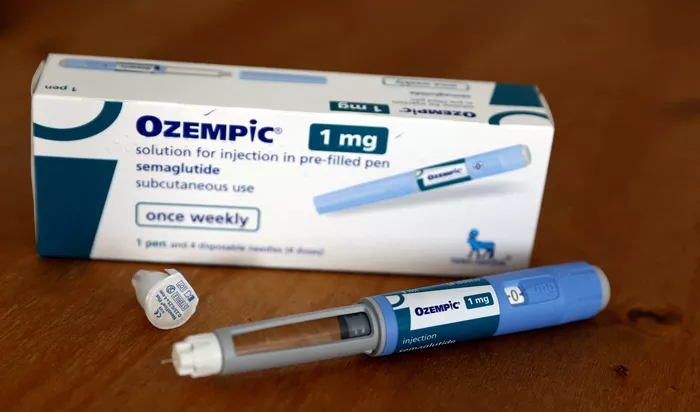The CEO of Novo Nordisk, Lars Fruergaard Jørgensen, recently defended the high U.S. prices of the company’s popular drugs, Ozempic and Wegovy, arguing that these medications are ultimately saving money by reducing the financial burden of obesity-related health issues.
In an interview on “NBC Nightly News,” Jørgensen stated, “Obesity costs the U.S. over $400 billion annually. Our products are contributing to alleviating this enormous cost.” He emphasized that the drugs, while expensive, are helping to lower the overall expenses associated with treating obesity in the United States.
Jørgensen, who spoke to NBC News prior to the company’s “quiet period” before its last earnings report, dismissed accusations that Novo Nordisk operates like a drug cartel as “baseless.”
He is set to testify before a Senate committee next month to discuss the U.S. pricing of Ozempic and Wegovy, both of which have become highly popular for treating diabetes and aiding weight loss. The hearing, led by Senator Bernie Sanders, I-Vt., chair of the Health, Education, Labor, and Pensions (HELP) Committee, is expected to scrutinize why Novo Nordisk charges significantly more for these drugs in the U.S. compared to other countries. According to a report from the HELP Committee, Wegovy costs around $1,300 per month in the U.S., while in Denmark, Germany, and the United Kingdom, it is priced much lower—$186, $137, and $92 per month, respectively.
Senator Sanders criticized the price disparity, stating, “Novo Nordisk is clearly exploiting the American public.”
The High Cost of Obesity in the U.S.
The financial burden of obesity in the United States is staggering. A report by the Kaiser Family Foundation (KFF) found that in 2021, individuals with employer-based health insurance who were overweight or obese incurred average annual health costs of $12,588, more than double the $4,699 spent by those without obesity. Additionally, out-of-pocket costs were significantly higher for those with obesity, averaging $1,487, compared to $698 for individuals without these conditions.
Despite the potential benefits of Ozempic and Wegovy in reducing obesity-related health issues, some experts question whether the high cost of these drugs justifies their savings in healthcare spending. Stacie Dusetzina, a health policy professor at Vanderbilt University, remarked, “While these drugs may improve health for many, it’s unlikely they will lead to a net reduction in healthcare spending at their current prices. Significant price reductions would be necessary to achieve overall savings.”
Navigating a Complex Healthcare System
Jørgensen expressed his willingness to appear before the Senate committee, noting that he had “volunteered” to discuss the pricing of Ozempic and Wegovy. His decision to testify came shortly after Senator Sanders threatened to subpoena Doug Langa, Novo Nordisk’s president.
During the upcoming hearing, Jørgensen plans to address the complexities of the U.S. healthcare system, which he claims is partly responsible for the high costs of these drugs. He pointed to the role of insurance companies and pharmacy benefit managers (PBMs) in driving up prices, noting that while Novo Nordisk is a participant in the system, it does not have the power to change it. “Policy changes are necessary,” Jørgensen said, emphasizing that the high out-of-pocket costs faced by patients are often the result of insurance structures and PBM practices.
PBMs negotiate discounts with drug manufacturers on behalf of insurers, but as their influence has grown, some experts argue that they may be contributing to rising drug costs. A recent interim report from the Federal Trade Commission (FTC) highlighted how PBMs might be inflating costs for patients.
Jørgensen acknowledged that some patients struggle to afford their medications due to poor insurance coverage and noted that Novo Nordisk offers patient support programs to assist those in need. He also called for a broader discussion on the value of these medications, stating, “We need to evaluate what these drugs are worth to patients in terms of their health benefits.”
Cynthia Cox, a vice president at KFF and director of its Affordable Care Act program, noted that while these drugs can prevent or mitigate several obesity-related diseases, their high cost remains a significant barrier. She added that the long-term effectiveness of these drugs in maintaining weight loss and improved health is still uncertain, given the relatively recent widespread use of these medications for weight loss.
“The long-term costs and benefits of these drugs are not yet fully understood,” Cox said, highlighting the need for more data to assess the overall impact of these medications on healthcare spending.
Related articles:
Healthcare stocks get a shot in the arm after Ozempic-fueled losses
An American City Transformed by Weight Loss Drugs: A Blessing or a Concern?
WHO Issues Alert on Falsified Semaglutide Medicines for Diabetes and Weight Loss


